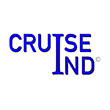Quick Facts:
- Founded: 1968
- Headquarters: Miami, Florida, USA
- Parent Company: Royal Caribbean Group
- Fleet Size: 27 ships (as of 2025)
- Flagship Class: Icon-class
- Market Segment: Contemporary / Family-friendly
Royal Caribbean International has built its reputation on scale, innovation, and bold design. Founded in 1968 by Ed Stephan and backed by a trio of Norwegian shipping companies, the line quickly distinguished itself by introducing purpose-built cruise ships at a time when many competitors were repurposing ocean liners. Today, Royal Caribbean stands as one of the most recognized cruise brands in the world, known for ships that consistently push the boundaries of what’s possible at sea.

Headquartered in Miami, the brand is part of Royal Caribbean Group, which also owns Celebrity Cruises and Silversea. Its fleet includes more than 25 ships that range from the compact Vision-class to the record-setting Icon-class, the world’s largest cruise ships in terms of gross tonnage. The company’s philosophy has always centered on “innovation at scale,” introducing amenities that redefine the onboard experience and later become industry standards.
Onboard Experience
Royal Caribbean’s ships are designed as destinations in themselves, with features that combine family appeal, resort-style amenities, and high-tech entertainment. The line introduced many firsts in the industry — from rock climbing walls and surf simulators to skydiving experiences and robotic bartenders.

Dining is a major highlight. The line offers a mix of complimentary and specialty options, including Giovanni’s Italian Kitchen & Wine Bar, Chops Grille, Izumi Sushi & Teppanyaki, and Wonderland, its experimental molecular gastronomy venue. Onboard technology continues to be a focus, with the Royal Caribbean app offering a seamless digital guest experience from check-in to dining reservations. None more so that the only robotic bar at sea. (A robotic arm will literally make you your drink.)

For families, the Adventure Ocean youth program and the Splashaway Bay water parks provide dedicated spaces for children and teens, while the AquaTheater, Studio B ice rink, and full-scale Broadway productions bring large-scale entertainment to sea. Adults can enjoy Solarium retreats, signature bars like Schooner Bar and Boleros, and the elevated Suite Neighborhood found on newer ships such as Icon of the Seas.
Operations and Deployment
Royal Caribbean operates globally, with a strong presence in the Caribbean, Alaska, Europe, and Asia. The brand’s private destinations include, Perfect Day at CocoCay in the Bahamas, Perfect Day Mexico, and the Royal Beach Club on Paradise Island in Nassau, serve as major differentiators, providing guests with exclusive access to branded resort-style experiences. CocoCay, in particular, has become a cornerstone of the brand’s marketing and itinerary planning, offering water parks, private cabanas, and the towering Thrill Waterpark.

The fleet continues to expand with next-generation Icon-class ships that emphasize energy efficiency, sustainable design, and advanced fuel technology. These ships also introduce a new architectural philosophy, featuring distinct neighborhoods, open-air promenades, and immersive entertainment zones.
Future Outlook

Royal Caribbean’s focus remains on scale, innovation, and sustainability. With Icon of the Seas entering service and sister ships Star of the Seas and Legend of the Seas on the way, the line is moving toward a new era defined by alternative fuels, smart technology, and experience-driven design. At the same time, Royal Caribbean continues to modernize its existing fleet under the “Royal Amplified” program, ensuring that older vessels maintain the same energy and appeal as the flagship ships.
Royal Caribbean’s success lies in its ability to anticipate what cruisers want before they know it — blending resort luxury, theme park excitement, and technological sophistication into a product that feels consistently ahead of the curve.


